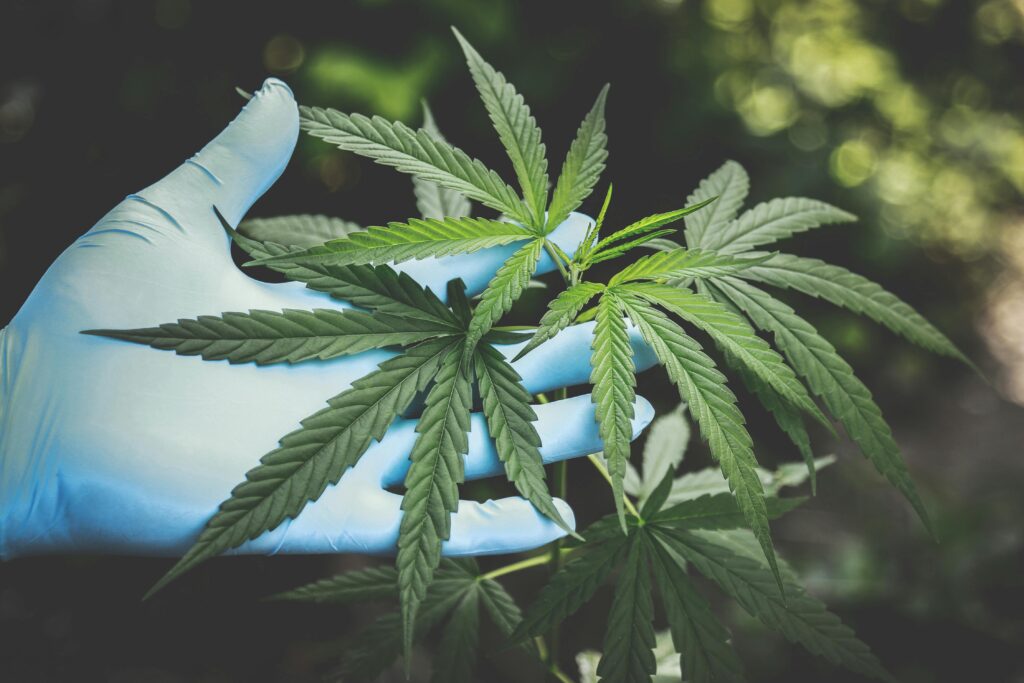Cannabidiol (CBD) oil has gained significant popularity in recent years as a natural remedy for various health issues. Derived from the cannabis plant, CBD is one of over a hundred cannabinoids that offer potential therapeutic benefits without the psychoactive effects associated with THC (tetrahydrocannabinol). This article explores seven key benefits, risks, and uses of CBD oil, helping you make informed decisions about its application in your health regimen.

Table of Contents
What is CBD Oil?
CBD oil is extracted from the hemp plant, a variety of cannabis that contains low levels of THC. The oil can be found in various forms, including tinctures, capsules, edibles, and topical applications. Unlike THC, CBD does not produce a “high,” making it a popular choice for those seeking the therapeutic benefits of cannabis without the psychoactive effects.

Benefits of CBD Oil
1. Pain Relief
One of the most well-known benefits of CBD oil is its potential to alleviate chronic pain. Research suggests that CBD interacts with the endocannabinoid system in the body, which regulates pain, inflammation, and immune responses. Many users report significant improvements in pain management, especially those suffering from conditions like arthritis, multiple sclerosis, or fibromyalgia.
2. Anxiety and Depression Management
CBD oil has been studied for its anxiolytic (anxiety-reducing) and antidepressant properties. Several studies indicate that CBD may help reduce symptoms of anxiety disorders, social anxiety, and PTSD (post-traumatic stress disorder). Its calming effects can promote relaxation without the sedative side effects commonly associated with traditional anxiety medications.
3. Improved Sleep Quality
Many individuals struggling with insomnia or other sleep disorders have found relief with CBD oil. By addressing underlying issues such as anxiety and chronic pain, CBD can promote a more restful night’s sleep. Additionally, some studies suggest that CBD may increase total sleep time and improve overall sleep quality.


4. Neuroprotective Properties
Emerging research indicates that CBD oil may have neuroprotective effects, potentially benefiting individuals with neurodegenerative diseases like Alzheimer’s and Parkinson’s. Its anti-inflammatory and antioxidant properties may help protect brain cells from damage, although more research is needed in this area.
5. Support for Heart Health
Preliminary studies suggest that CBD may benefit heart health by reducing blood pressure and alleviating inflammation. By promoting relaxation and reducing anxiety, CBD oil can potentially lower the risk of heart disease and improve overall cardiovascular health.

6. Research and Quality Assurance
When purchasing CBD oil, choose products from reputable manufacturers that provide third-party lab testing results. This ensures that the product is safe, accurately labeled, and free from harmful contaminants.
7. Support for Various Conditions
CBD oil has been studied for its potential in supporting various health conditions, including epilepsy, Crohn’s disease, and PTSD. Its anti-inflammatory and calming properties make it a versatile option for those seeking holistic health solutions.
Risks and Side Effects of CBD Oil
While CBD oil offers numerous potential benefits, it is essential to be aware of its risks and side effects. Some individuals may experience:
- Drowsiness: In some cases, CBD can cause drowsiness, particularly when taken in high doses. It’s crucial to assess your tolerance and avoid activities that require full alertness until you understand how CBD affects you.
- Gastrointestinal Issues: Some users report nausea, diarrhea, or changes in appetite after taking CBD oil. Starting with a low dose and gradually increasing can help minimize these effects.
- Interactions with Medications: CBD may interact with certain medications, particularly those that come with a “grapefruit warning.” If you are taking any medications, consult with a healthcare professional before starting CBD oil.
Legal Considerations
The legality of CBD oil varies by location. In many regions, CBD derived from hemp with less than 0.3% THC is legal, while CBD from marijuana may still be subject to restrictions. It’s essential to research local laws and regulations regarding CBD use.
How to Use CBD Oil
1. Start Low and Go Slow
When starting with CBD oil, begin with a low dose (typically 5-10 mg) and gradually increase it based on your body’s response. This approach helps you gauge how CBD affects you without overwhelming your system.
2. Consider Different Forms
CBD oil comes in various forms, including tinctures, capsules, edibles, and topicals. Tinctures are absorbed quickly under the tongue, while capsules provide a convenient option for those who prefer not to taste the oil. Topicals are ideal for localized pain or skin conditions.
3. Consult with a Healthcare Professional
If you’re considering incorporating CBD oil into your routine, consult a healthcare professional, especially if you are pregnant, nursing, or taking medications. They can provide guidance on safe usage and dosage based on your individual health needs.


Conclusion
CBD oil presents numerous potential benefits, including pain relief, anxiety management, improved sleep quality, neuroprotective properties, and support for heart health. However, it is essential to be aware of potential risks and side effects and consult with a healthcare professional before starting any new supplement.
If you have further questions or need personalized guidance regarding CBD oil, feel free to contact our health experts at Health Authentica. We’re here to support you on your journey to better health!










